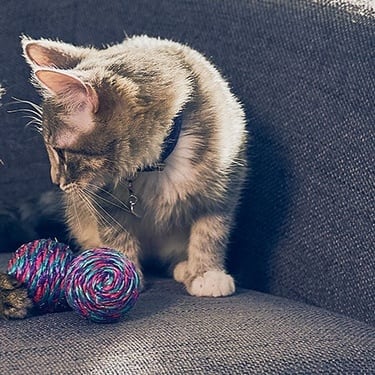
-
Find the right food for your petTake this quiz to see which food may be the best for your furry friend.Find the right food for your petTake this quiz to see which food may be the best for your furry friend.Health CategoryFeatured products
 Adult with Beef & Barley Dog Food
Adult with Beef & Barley Dog FoodBeef & Barley recipe with precisely balanced nutrition to keep Adult dogs active and healthy
Shop Now Adult with Chicken & Barley Wet Dog Food
Adult with Chicken & Barley Wet Dog FoodChicken & Barley recipe with precisely balanced nutrition to keep Adult dogs active and healthy
Shop Now Adult with Turkey Wet Dog Food
Adult with Turkey Wet Dog FoodTurkey & Barley recipe with precisely balanced nutrition to keep Adult dogs active and healthy
Shop NowFeatured products Adult 7+ Tender Tuna Dinner Cat Food
Adult 7+ Tender Tuna Dinner Cat FoodWith delicious chunks in a decadent gravy
Shop Now Adult Chicken & Spinach Casserole Cat Food
Adult Chicken & Spinach Casserole Cat FoodWith delicious chunks in a decadent gravy
Shop Now Sensitive Stomach & Skin Chicken & Beef Dinner
Sensitive Stomach & Skin Chicken & Beef DinnerGourmet daily nutrition, carefully made. Tasty chunks with chicken & beef in a decadent gravy. Supports digestive health, nourishes skin and promotes a lustrous fur.
Shop Now -
DogCat
- Cat Tips & Articles
-
Health Category
- Weight
- Skin & Food Sensitivities
- Urinary
- Digestive
- Kidney
- Dental
- Serious Illness
-
Life Stage
- Kitten Nutrition
- Adult Nutrition
Featured articles Pet Food Storage Tips
Pet Food Storage TipsWhere you store your cat and dog food can make a big difference in the quality and freshness once it is opened. Here are some common questions and recommendations for optimal storage for all of Hill’s dry and canned cat and dog food.
Read More Water
WaterWater is the most important nutrient of all and essential for life. Animals can lose almost all their fat and half their protein and still survive, but if they lose 15% of their water, it will mean death.
Read MoreHill's Australian Bushfire EffortsRead More -


Congratulations on becoming the parent of a kitten! Now that your new pet is settling into your home, you may notice your cat vocalizing in a way that sounds like they're crying. Hearing baby kittens crying is a sad sound, indeed. Read on to learn why kitties cry and how to help a crying kitten.
Why Kittens Cry
Much like a human baby, your kitten communicates with you through vocal sounds. Your cat will continue this behavior throughout their life because it's an effective way to get your attention. A crying kitten is telling you they need something, pronto.
Generally, an otherwise healthy kitten cries because they want one or more of the following:
- Food
- Warmth
- Affection
- Playtime
- Stress alleviation
A bored kitty is a (potentially) mischievous kitty, so keep them occupied! Playing with your kitty every day and providing them with enrichment will keep your furry friend mentally and physically satisfied.


Tasty Tips
How to Soothe a Crying Kitten
Knowing your kitten's developmental and nutritional needs during their first months will help you identify why they're crying. Here are common reasons why kittens cry at different ages, and how you can help soothe your kitty.
Newborn to 8 Weeks
Newborn kittens are born deaf and blind. In their first weeks of life, it's normal to hear baby kittens crying or meowing because they need food and warmth, says the brush their teeth later on.
6 Months to Adulthood
As your kitten approaches adolescence and adulthood, they'll start to settle down and chill out. As your cat is reaching their adult size, it is important to reassess their litter box. If you notice your kitty crying before, during or after using the litter box, it is important to have them examined by your veterinarian. Vocalizing in the litter box could be the result of painful urination or defecation.
How to help: The first step when it comes to a cat or kitten crying or showing signs of distress at the litter box is to have your pet evaluated by a veterinarian. However, creating a safe, clean and comfortable place for your cat to use the bathroom is recommended for all cats, even those not having any problems. Consider whether the litter box is big enough for your cat and whether they like the litter. It is generally recommended to have a litter box 1.5x the length of your cat and it needs to be easy to get into. Be sure to scoop daily and keep the area clean and tidy.
When to Call the Vet
If your kitten's crying doesn't abate or if you notice additional signs of distress, such as diarrhea, vomiting, lethargy, decreased appetite or excessive grooming, speak with your vet or an on-call emergency vet.
Your kitty's meows and cries will change as they grow into a rambunctious young adult and beyond. Keep those lines of communication open by listening, responding and showing them lots of love.


Christine O'Brien is a writer, mom, and long-time cat parent whose two Russian Blues rule the house. Her work also appears in Care.com, What to Expect, and Fit Pregnancy, where she writes about pets, pregnancy, and family life. Find and follow her on Instagram and Twitter @brovelliobrien.
Related products

Gourmet daily nutrition, carefully made. Tasty chunks with chicken & beef in a decadent gravy. Supports digestive health, nourishes skin and promotes a lustrous fur.

With delicious chunks in a decadent gravy

With delicious chunks in a decadent gravy

With delicious chunks in a decadent gravy
Related articles


Are you looking to get your cat more active? Does she constantly look bored? Then you may want to consider using a food-dispensing (also known as treat-dispensing) cat toy, which provides both physical and mental stimulation during snack times.

Discover which cat toys games your feline friend might like, and how they are great sources of exercise. Explore our library of articles to learn more.

Good nutrition is about the right balance of nutrients. Learn more about health issues when feeding a cat food that has an improper nutritional balance from your friends at Hills Pet Nutrition.

Put your cat on a diet without them knowing
Our low calorie formula helps you control your cat's weight. It's packed with high-quality protein for building lean muscles, and made with purposeful ingredients for a flavorful, nutritious meal. Clinically proven antioxidants, Vitamin C+E, help promote a healthy immune system.
Put your cat on a diet without them knowing
Our low calorie formula helps you control your cat's weight. It's packed with high-quality protein for building lean muscles, and made with purposeful ingredients for a flavorful, nutritious meal. Clinically proven antioxidants, Vitamin C+E, help promote a healthy immune system.

